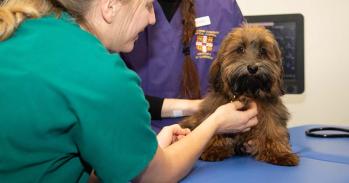
A consortium led by Dr Julian Allwood aims to drive a step-change in the manufacturing of steel and aluminium to meet 2050 carbon targets.
A consortium led by Dr Julian Allwood aims to drive a step-change in the manufacturing of steel and aluminium to meet 2050 carbon targets.
It is widely agreed that a cut of at least 60% in global greenhouse gas emissions will be required by 2050 to limit the adverse effects of climate change. Emissions from industry are dominated by those arising through the manufacture of five key materials: cement, steel, plastic, paper and aluminum. Steel and aluminium are responsible for 8% of global energy-related emissions, and demand for these metals is forecast to double by 2050. Industry efforts to date have focused on reducing energy in primary production, as well as recycling metal by melting and re-casting. However, recycling rates are already around 60–70% and the most optimistic projections for energy efficiency improvements deliver only 30% reduction per unit output of material. How, then, can the 2050 targets be achieved?
Dr Julian Allwood, Senior Lecturer in the Department of Engineering, has been awarded a five-year, £1.5 million Engineering and Physical Sciences Research Council (EPSRC) Leadership Fellowship that aims to help industry meet this challenge. He proposes that a key element of a low carbon metals economy will come from applying material efficiency strategies in which future production of new primary metal is reduced, for instance by reusing metals without melting them or by extending their service life. The funding for the project, WellMet2050, supports a team of seven and is supported by a large industrial consortium.
‘Working with academic partners in several countries, future scenarios of metal flows and associated economic forecasts will be developed to anticipate what must be achieved,’ explained Dr Allwood. ‘These will be explored with a consortium of 20 major global companies spanning the metals supply chain, to identify the barriers to achieving them and to find technical, economic and policy measures required to overcome these barriers.’ In total, the companies have committed £2 million of in-kind funding.
Collaborating with companies
Analysing examples of material efficiency strategies will form an important component of the research. For instance, in India, up to a sixth of the country’s supply of steel is provided by labour-intensive ship breaking, supplying plates of used steel that are re-rolled rather than melted. Can oil companies such as BP, faced with finding economically and environmentally sound ways of decommissioning end-of-life oil rigs, learn valuable lessons from this approach? Can such lessons also apply to the reuse of steel girders from old buildings? The average life of a commercial building is 30–60 years before demolition, but the buildings are rarely ‘broken’, just no longer ‘fit for purpose’. Can buildings that are constructed on a strong and open frame be re-configured? Research with industrial partner Arup will explore the carbon emissions savings that could be achieved through extending building life.
The research will also include work with Corus, Novelis and Alcoa to see if designing ways of better thermal management could reduce the number of heating and cooling stages required in metals production.
Creating change in industry
The research will be split between two themes: a business analysis theme will identify future scenarios, barriers and a roadmap for meeting the target. This work will include specific analysis of future metal flows, application of a global economic model and the analysis of policy measures. A technology innovation theme aims to optimise the requirements for metal use through novel manufacturing process design, to increase material and energy efficiency in forming and finishing, and to develop solid-state closed-loop recycling for metals. Together, this basic research has the potential to drive a step-change in material efficiency, by demonstrating that a different flow of metal through the global economy is technically and economically possible, and by inspiring and informing those who can influence change.
For more information, please contact Dr Julian Allwood (jma42@eng.cam.ac.uk) at the Department of Engineering or visit www.wellmet2050.com/
This work is licensed under a Creative Commons Licence. If you use this content on your site please link back to this page.





